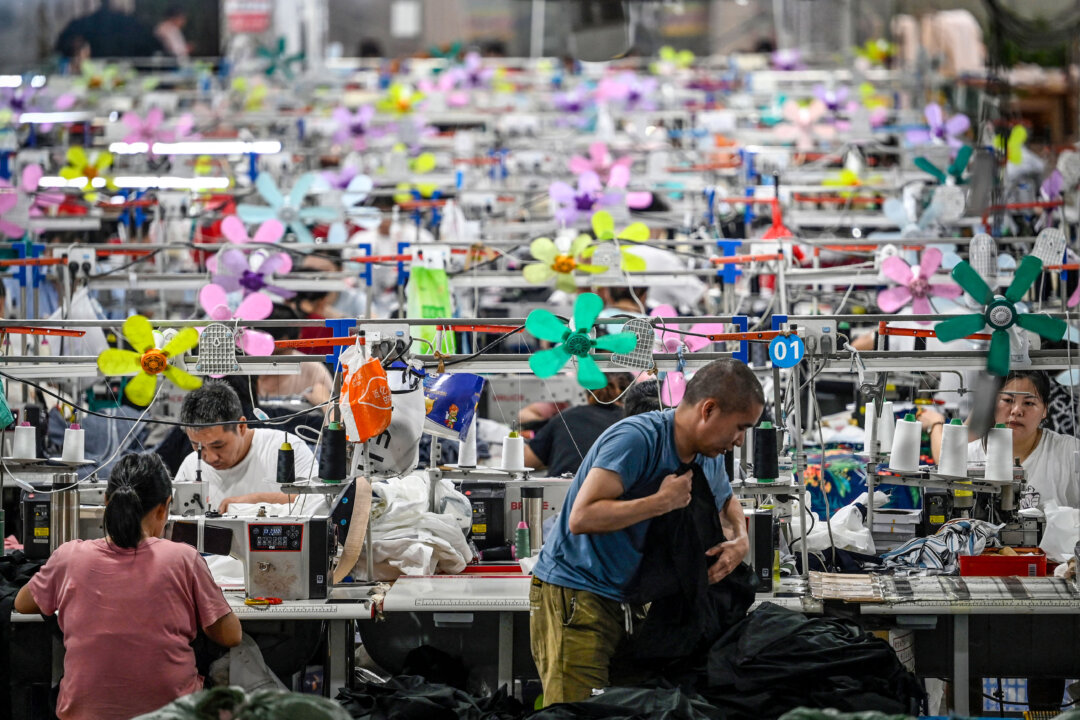Higher standards are needed for companies going public.
Commentary
Shein, the fast-fashion brand, has received approval for an initial public offering from a regulator in London. The company is a rapidly expanding and highly popular online retailer, or e-tailer for short. Shein is headquartered in Singapore.
However, the company is also closely linked to the Chinese regime. Sky Xu, a Chinese billionaire, founded Shein in 2008 in Nanjing, China. Most of Shein’s products are made in China. Chinese Communist Party (CCP) policy encourages online retailers, including Shein, in China to directly engage foreign consumers, rather than rely on U.S. competitors, such as Amazon.
The company allegedly uses
forced labor in China, according to a group called Stop Uyghur Genocide. The group reportedly plans to apply for a judicial review of the IPO that could stop it entirely.
Shein allegedly uses electronic monitoring, including AI, to scour social media and find the most popular designs. These designs are then rapidly produced by Shein’s partners and offered for sale on its website. Many of the smallest designers, whose ideas are allegedly used, do not even realize that their work is scraped from Instagram and TikTok and put into mass production within days.
There are also allegations against Shein of counterfeiting, theft, false imprisonment, racketeering, “mafia-style intimidation of suppliers” (as alleged by rival Temu), copyright and trademark infringement, false advertising and origin designation, and more generally unfair competition.
Shein lists as many as 600,000 items at a time for air shipping to buyers worldwide. The company reportedly generated $38 billion in sales in 2024, representing a 19 percent growth over 2023 sales. But its profits were reportedly down by almost 40 percent in 2024 compared to the previous year.
Shein’s reliance on manufacturing in China is an increasing liability due to the Trump administration’s rising tariffs on the country. On April 9, the Trump administration announced that U.S. tariffs on China would increase to 145 percent, in addition to existing tariffs on sectors such as autos and steel. On May 2, the “de minimis” small package loophole will close. It allows packages valued under $800 to enter the United States tariff-free and without customs inspection. That’s an invitation to smugglers, including those dealing with illicit fentanyl. About two-thirds of tariff-free small packages originate in China, as Shein, Temu, and Amazon have taken full advantage of the loophole.
Shein is so dependent on manufacturing in China that it sought approval from Beijing to go ahead with the IPO. That approval is not yet forthcoming. The CCP wants to ensure that Shein keeps its manufacturing in China as much as possible, rather than move it to other countries. But the 145 percent tariff has radically changed the business atmosphere in China for manufacturers. Shein has reportedly already started to source from factories in Vietnam, Brazil, and Mexico to escape U.S. tariffs.
Shein’s moving production out of China, which will help reduce the regime’s tax revenues, is a good thing for democracy and human rights. For ethical reasons, it should continue to do so. But Shein’s shift to non-Chinese production is so far only partial. It denies reports that it is shifting supply chain capacity away from China and claims that suppliers in the mainland increased from 5,800 last year to 7,000 now. It is investing $1.37 billion in South China industrial projects, including a supply chain hub in Guangzhou.
Shein’s supply chains should be fully removed from China before any international IPO. The production should not only be moved out of China, but also out of all authoritarian countries, including Vietnam. Otherwise, international investors are essentially continuing to invest in authoritarian countries. It’s time for democracies to use their purchasing power for good, not just for the cheapest fast-fashion they can find.
Not surprisingly, the owners of Shein are apparently reading the writing on the wall and want out. That’s why they are seeking the IPO. The United States all but rejected Shein’s attempt to go public on U.S. stock exchanges in 2024. The United Kingdom should follow suit. Shein should not be presented to naive retail investors so they can risk their money in a foreign company that enables the CCP through production in China.
Views expressed in this article are opinions of the author and do not necessarily reflect the views of The Epoch Times.








Leave feedback about this